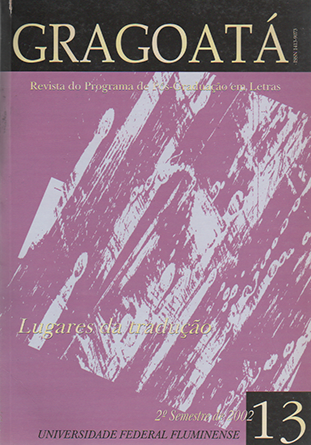Descriptive translation studies: a critical review
Keywords:
Polysystem theory, Descriptive translations studies, Translation norms.Abstract
The purpose of this article is twofold: (i) to review the major contributions of the theoretical framework known as Descriptive Translation Studies, developed in the mid-seventies by a group of European scholars concerned with the study of literary translations, and (ii) to discuss some theoretical gaps and flaws of the descriptive approach which have not been properly dealt with. The descriptive approach is based on the following assumptions: (i) a view of literature as a complex and dynamic system; (ii) a conviction that there should be a continual interplay between theoretical models and practical case studies; (iii) an approach to literary translation which is descriptive, target-oriented, functional and systemic; (iv) and an interest in the norms and constraints that govern the production and reception of translations, in the relation between translation and other types of text processing, and in the place and role of translation both in a given literature and in the interaction between literatures. In the last twenty-five years, the descriptive approach has been informing a great number of studies of the translated literature system in several cultures, particularly in Europe, but it still presents some flaws which should be resolved to improve the theory. Among such flaws there is the tendency to be too descriptive, to the point of failing to think critically, and the lack of explicit epistemological assumptions and redefinitions of key concepts.
Downloads
Downloads
Published
How to Cite
Issue
Section
License
Authors who publish in Gragoatá agree to the following terms:
The authors retain the rights and give the journal the right to the first publication, simultaneously subject to a Creative Commons license CC-BY-NC 4.0, which allows sharing by third parties with due mention to the author and the first publication by Gragoatá.
Authors may enter into additional and separate contractual arrangements for the non-exclusive distribution of the published version of the work (for example, posting it in an institutional repository or publishing it in a book), with recognition of its initial publication in Gragoatá.

Gragoatá is licensed under a Creative Commons - Attribution-NonCommercial 4.0 International.














